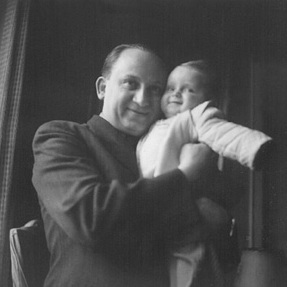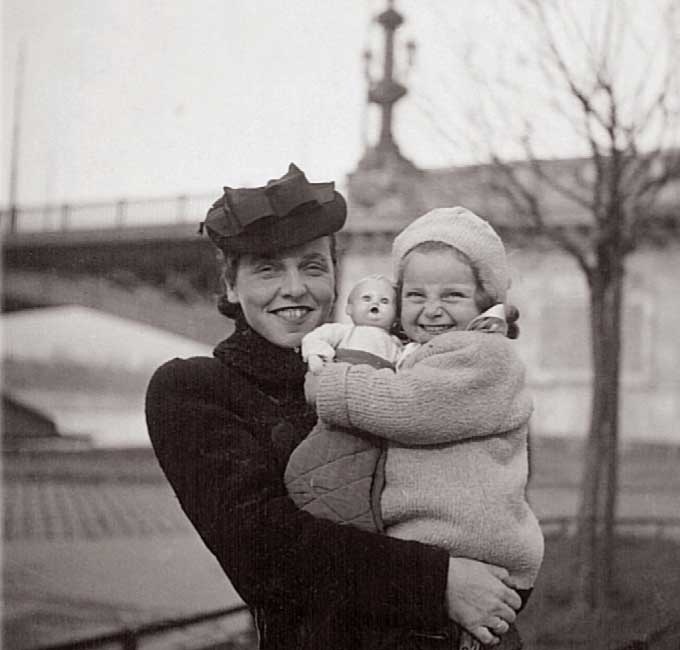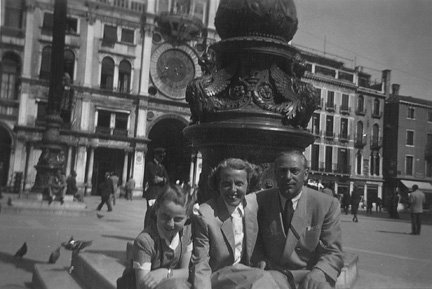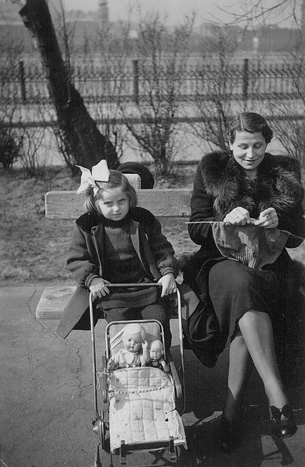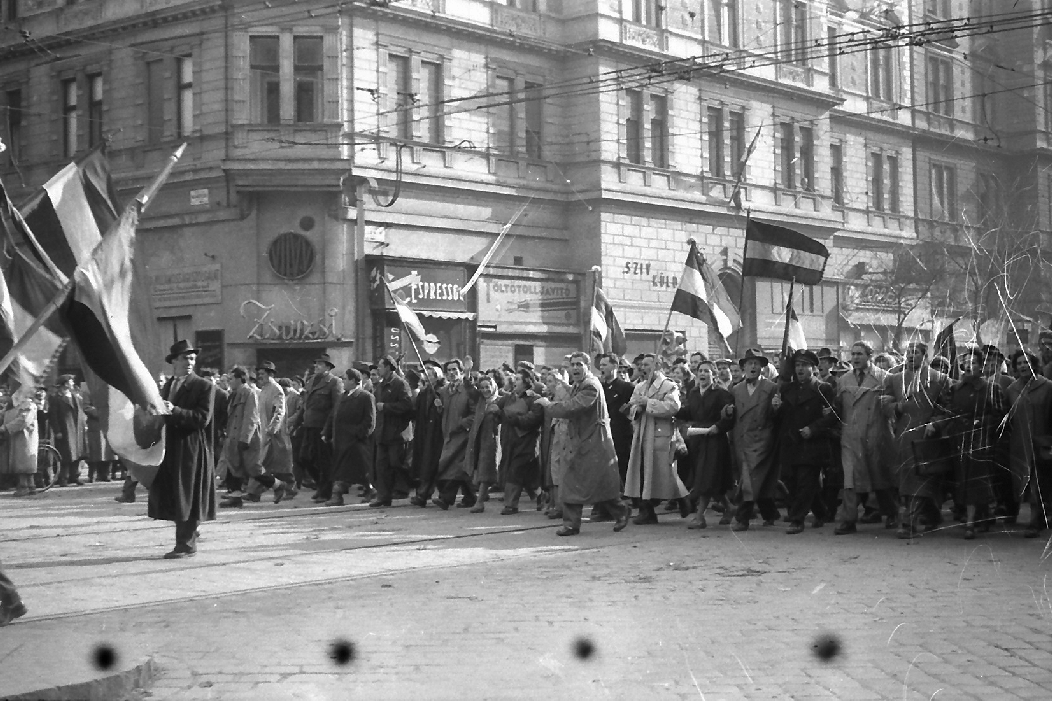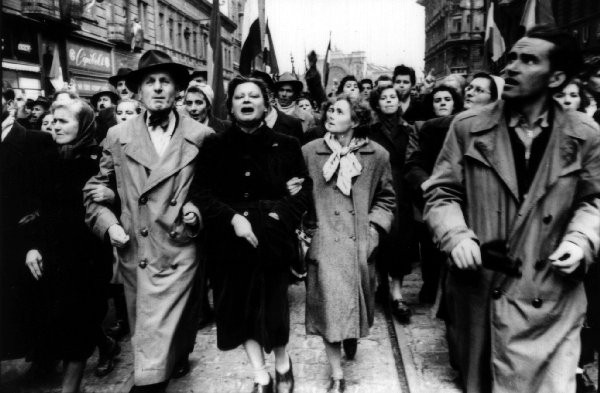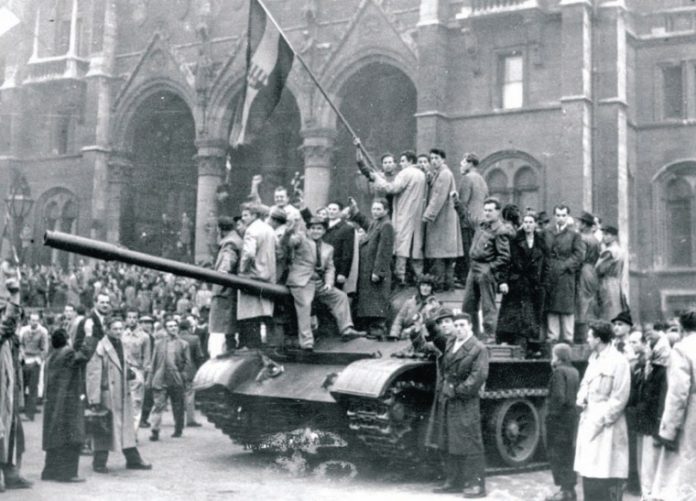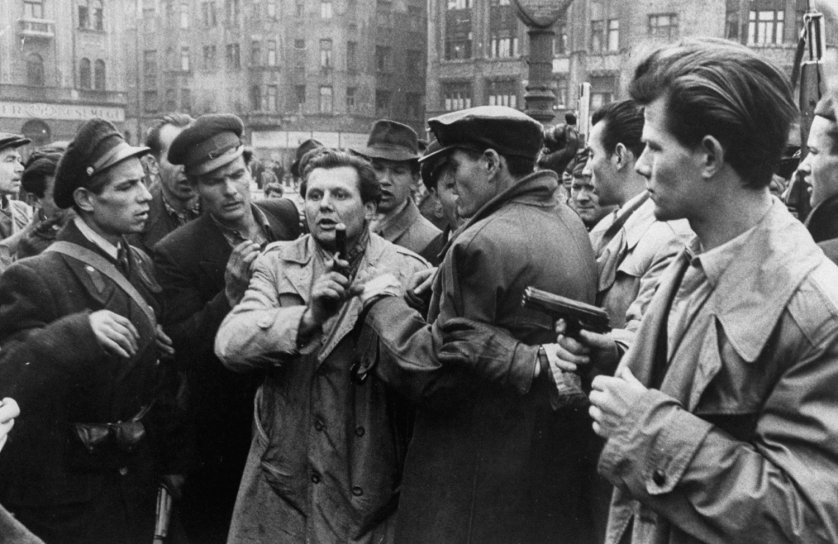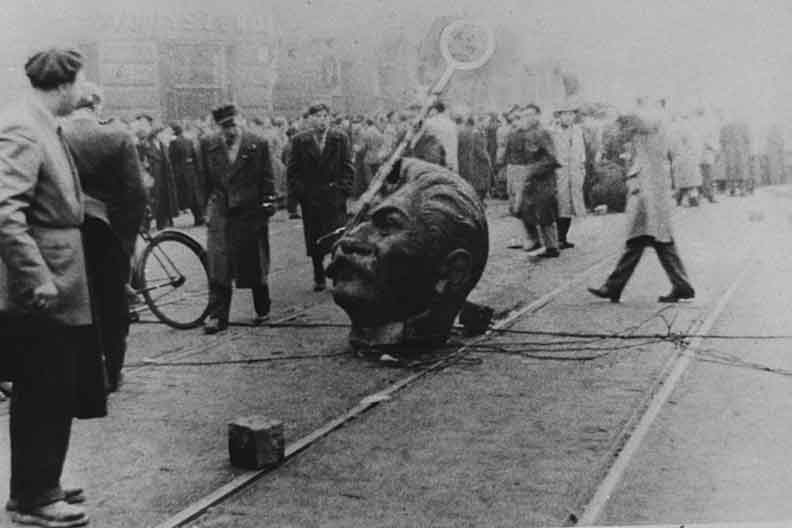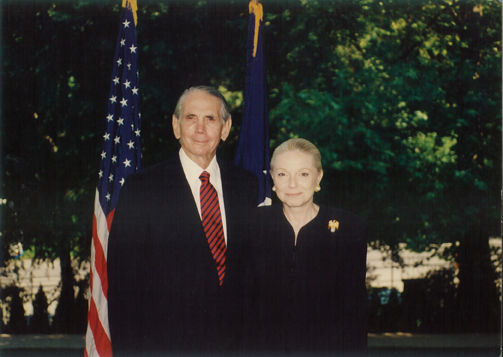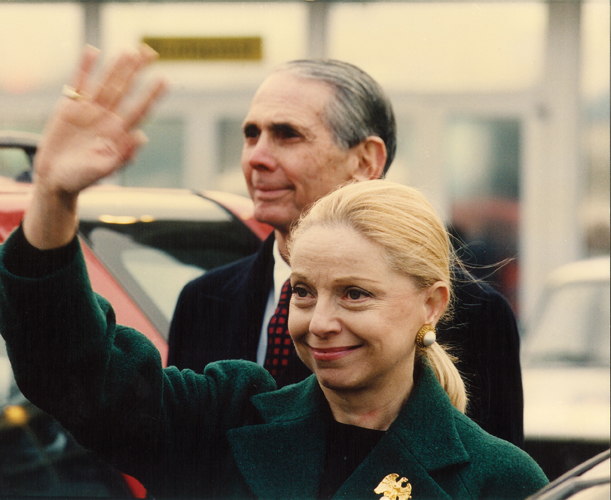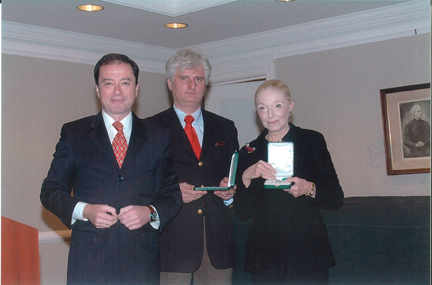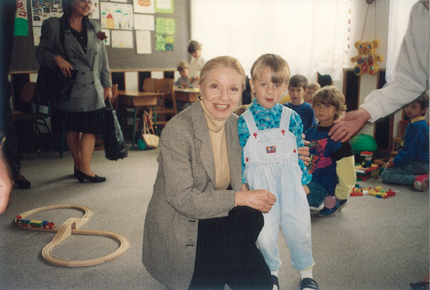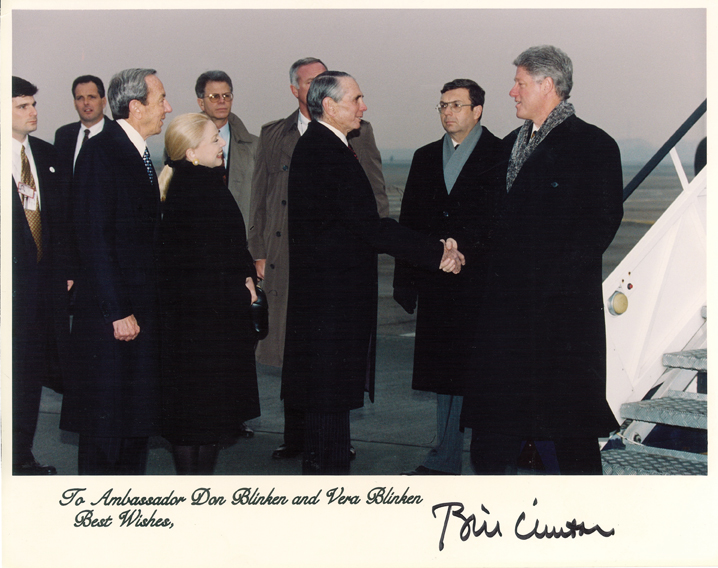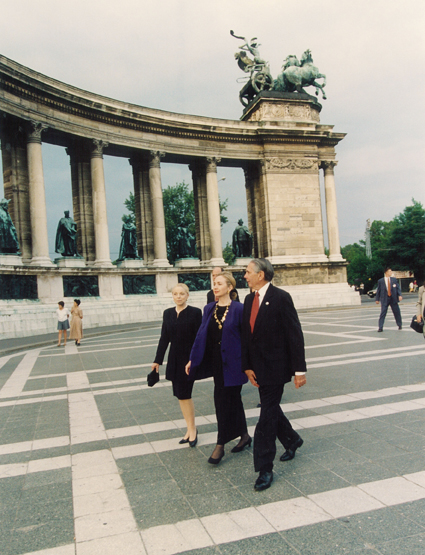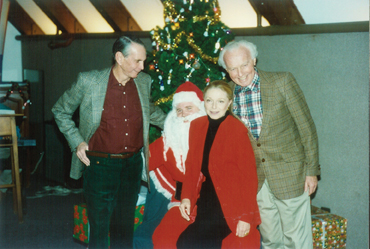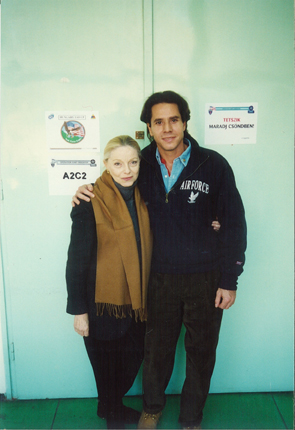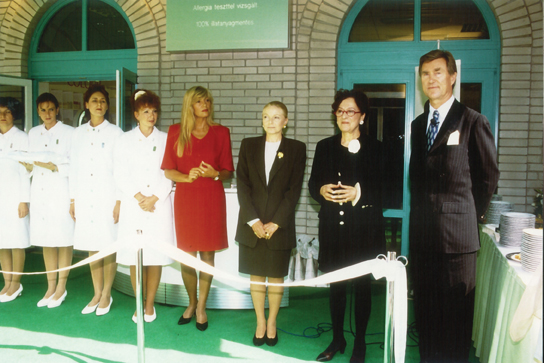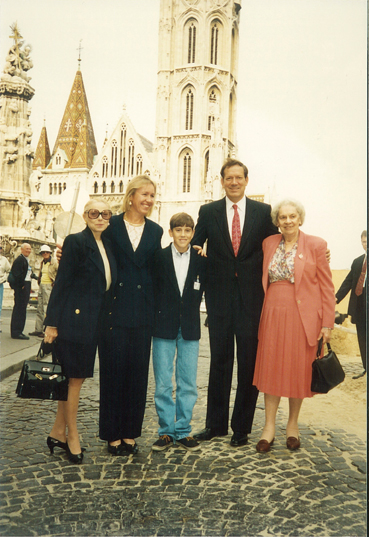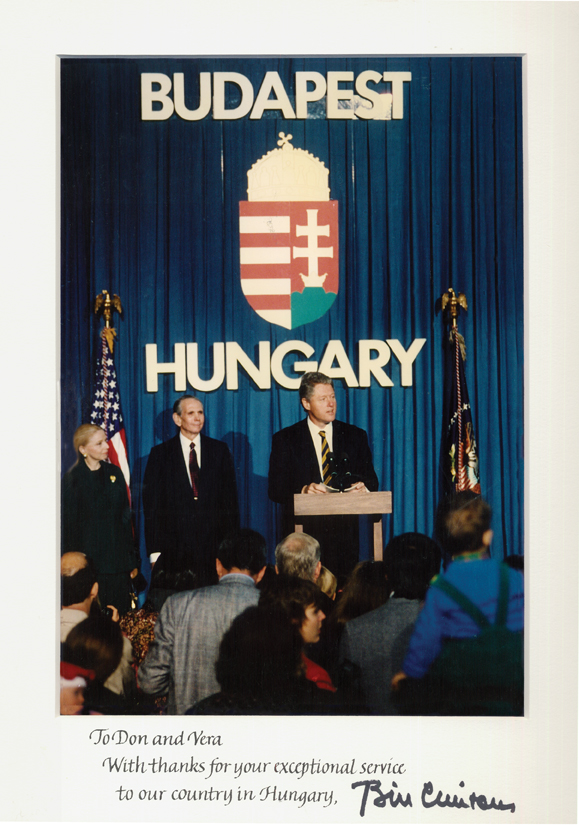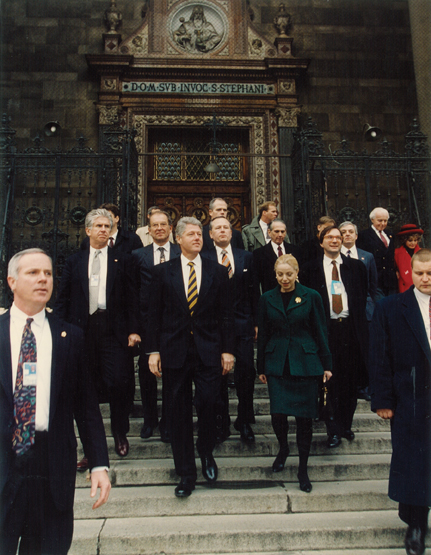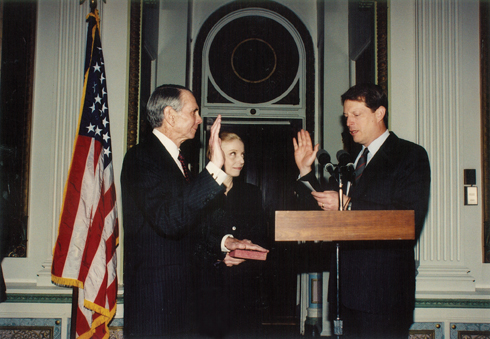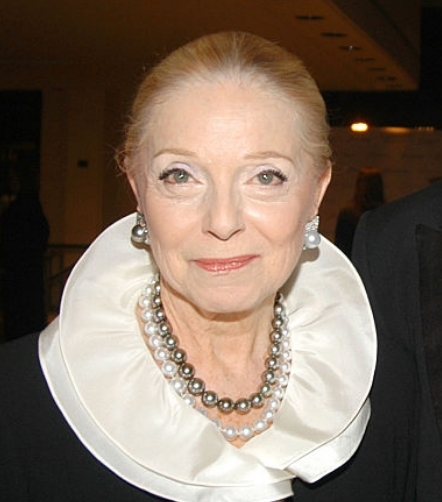My American Story: Vera Blinken
by Vera Blinken
On a cold, gray cloudy morning in December 1994 I was standing on the tarmac of the airport in Budapest with my husband Donald, the Ambassador of the United States to Hungary, my country of birth. We were awaiting the arrival of President Bill Clinton on Air Force One.
It had been a long journey to that VIP reserved spot.
I was born in Budapest during WWII. The Nazis entered the city on March 19th, 1944. Among my earliest memories is the sound of sirens warning us of imminent bombings, a call to rush to the basement air-raid shelter. We often spent long hours in tight dark quarters as electric power was an early casualty of the war.
Another early memory is of being hungry. Between sirens, mother went out looking for food. She always took me with her saying ”I don’t want you to be an orphan, if we die, we die together.”
On January 16th, 1945 Soviet soldiers entered our basement shelter and liberated us. Unaware of what the future held, at that moment we truly felt liberated. We could go up to the street and see daylight.
After having survived the war, my father died in 1948 at age 44. Mother took this as a sign that she must take her child out of what was by then Communist Hungary. After many failed attempts to find a crack in the Iron Curtain for our escape, mother found a way. With the help of the Italian Ambassador she married an Italian citizen with whom we went “home” to Italy. Soon after, the marriage was annulled as it was a union in name only for humanitarian reasons. To this day, I am grateful to that kind and generous man.
Mother and I had no citizenship and no passports. We came to the United States on stateless visas under the Hungarian quota which was empty as most Hungarians who wanted to leave could not find a way out. We arrived by boat, appropriately on the S.S. America, greeted by the sight of the Statue of Liberty. The ship’s name foretold not only my destination but my future.
Except for Niagara Falls I knew nothing of America and didn’t speak a word of English. I was a frightened little girl without roots and without a country. I was homesick but knew that Communist Hungary was not the home I wanted.
At first, school was very difficult. My classmates made fun of my old fashioned watch and my pigtails with bows. The teasing needed no translation and caused me a great deal of pain. Wanting so badly to be understood and accepted I resolved to become 200% American. Six months after entering school, I received the American history prize and several years later was admitted to Vassar College. I graduated with a degree in the History of Art.
“Like every other refugee, I carry my past with me...the guilt of the survivor...for having escaped when millions couldn’t, and even for being alive when so many were now dying for their beliefs. ”
Like every other refugee, I carry my past with me. On October 23rd 1956 news broke out that university students in Budapest were demonstrating for political freedom and for the withdrawal of Soviet troops from Hungarian soil. Soon, Soviet forces suppressed the uprising with a massive show of military force. Since leaving Hungary, as I was building a new American life, I had not allowed myself to think about my early childhood. But now, I felt guilty. While I was safe in New York young people my age, perhaps even former playmates, were engaged in gun battles and were throwing Molotov cocktails at advancing Soviet tanks. The guilt of the survivor - for having survived the war when tens of thousands didn’t, for having escaped when millions couldn’t and even for being alive when so many were now dying for their beliefs.
I resolved to give back for the freedom and opportunities this great country has granted me.
I have volunteered my time and have served on the boards of several organizations and NGOs. But my lifelong commitment has been to the International Rescue Committee, where I have served in several capacities since 1978. The IRC was founded in 1933 at the suggestion of Albert Einstein to assist intellectuals fleeing nazi Germany. Today the IRC serves some of the world’s most vulnerable people to alleviate their suffering, and helps refugees and other immigrants rebuild their shattered lives in the United States.
“It was a great privilege and honor to serve the United States — a country that is mine not by birth, but by choice.”
Life came full circle when I returned to Hungary in 1994, just three years after the Soviet occupiers left the country, as the wife of the Ambassador of the United States. Donald and I were sent there to promote American values of freedom, democracy, and the rule of law and to help Hungary emerge from behind the Iron Curtain and rejoin the West. It was a great privilege and honor to serve the United States -- a country that is mine not by birth, but by choice.
ABOUT THE AUTHOR
Vera Blinken was born in Budapest, and graduated from Vassar College with a degree in the History of Art. She practiced interior design, first at the architectural firm of Edward Durell Stone, and later founded Vera Evans Interiors. Mrs. Blinken has been a member of the Board of Directors of the International Rescue Committee since 1978, serving most recently as Secretary. She was Special Assistant for the Arts and Cultural Affairs to Senator Daniel Patrick Moynihan and is currently Vice Chairman of FAPE—Foundation for Art and Preservation in Embassies. While living in Hungary as the wife of the Ambassador, in 1996 she founded PRIMAVERA, the first mobile breast cancer screening program in Central and Eastern Europe. In 2002, for services to the Hungarian people, she was awarded the Middle Cross of the Republic of Hungary. In 2009, she and her husband, Donald Blinken, co-authored their memoir “Vera and the Ambassador: Escape and Return”. She lives in New York City with her husband.

